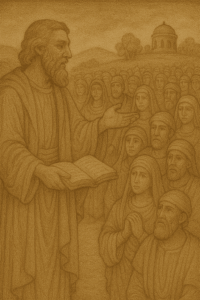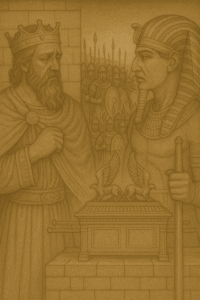Deuteronomy 19 is a significant chapter where Moses provides instructions regarding the establishment of cities of refuge and the principles of justice. These guidelines are crucial for ensuring the Israelites maintain a just and compassionate society.
The context of Deuteronomy 19.
In Deuteronomy 19, Moses addresses the Israelites, detailing the laws concerning cities of refuge and the administration of justice. These cities are designated places where individuals who have committed unintentional manslaughter can seek asylum. Moses also emphasizes the importance of fair judgment and the procedures for handling cases of murder and false witnesses.
Key Themes in Deuteronomy 19.
- Cities of refuge: Moses instructs the Israelites to set aside cities of refuge where individuals who have accidentally killed someone can flee for safety. These cities provide protection from revenge until a fair trial can be conducted.
- Fair judgment: The chapter emphasizes the importance of fair and impartial judgment. Moses instructs the Israelites to ensure that justice is administered without bias, protecting the innocent and punishing the guilty appropriately.
- Procedures for murder cases: Moses outlines the procedures for handling murder cases. If the act was intentional, the murderer is to be handed over to the avenger of blood. However, if it was accidental, the individual can remain in the city of refuge until the death of the high priest.
- Handling false witnesses: The chapter also addresses the issue of false witnesses. Moses warns that those who bear false testimony should receive the punishment they intended for the accused, ensuring that honesty and integrity are upheld in the judicial process.
Lessons from Deuteronomy 19.
- Compassion and justice: The establishment of cities of refuge demonstrates the balance between compassion and justice. It provides protection for those who have committed unintentional acts while ensuring that justice is served.
- Importance of fair trials: Fair and impartial trials are crucial for maintaining justice. Moses’ instructions highlight the need for thorough investigations and unbiased judgments in legal matters.
- Protection of the innocent: The laws in Deuteronomy 19 emphasize the protection of innocent individuals. By providing refuge and ensuring fair trials, the community upholds the values of justice and righteousness.
- Integrity in testimony: The consequences for false witnesses underscore the importance of honesty and integrity in the judicial process. Upholding truth is essential for maintaining trust and justice in society.
Conclusion.
Deuteronomy 19 provides essential guidelines for establishing cities of refuge and administering justice. As we reflect on this chapter, we are reminded of the importance of balancing compassion with justice, ensuring fair trials, protecting the innocent, and maintaining integrity in our testimonies. By following these principles, we can create a just and righteous society that honors God’s commandments.






